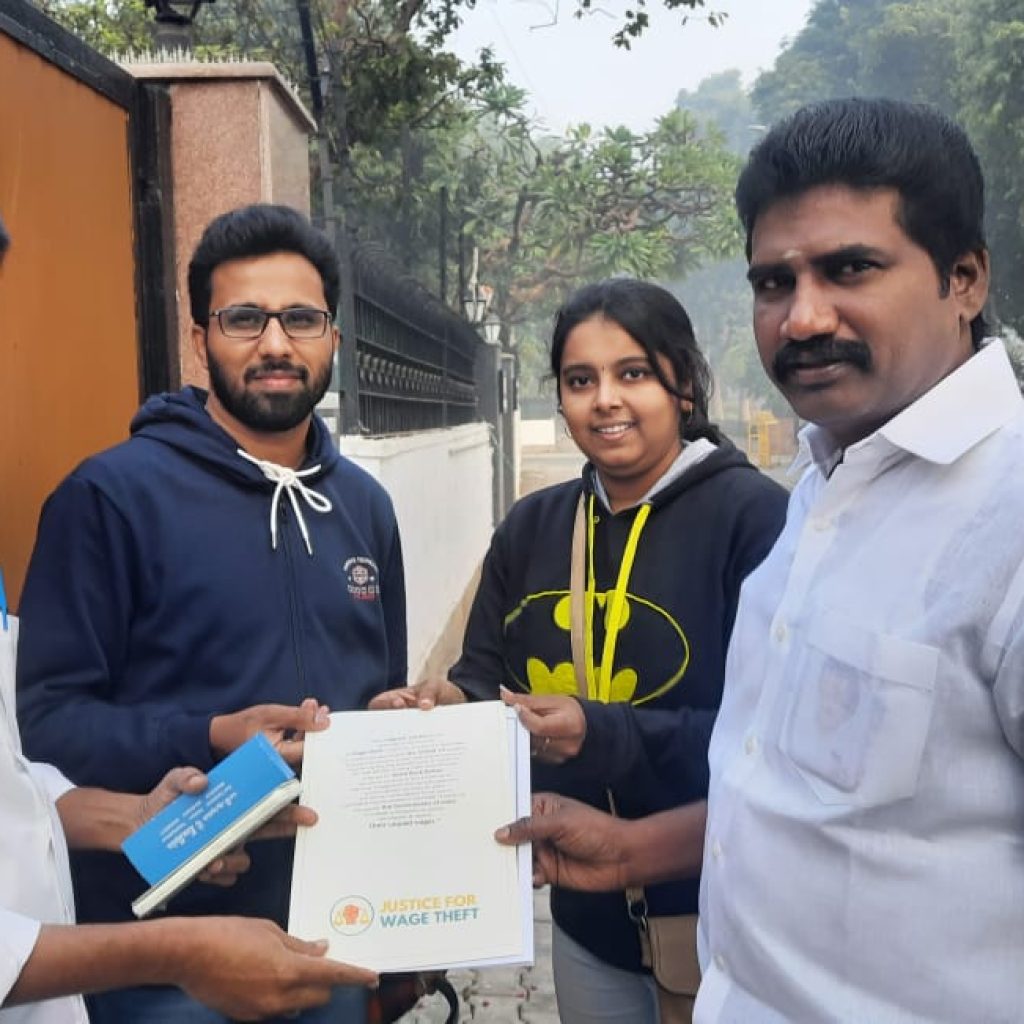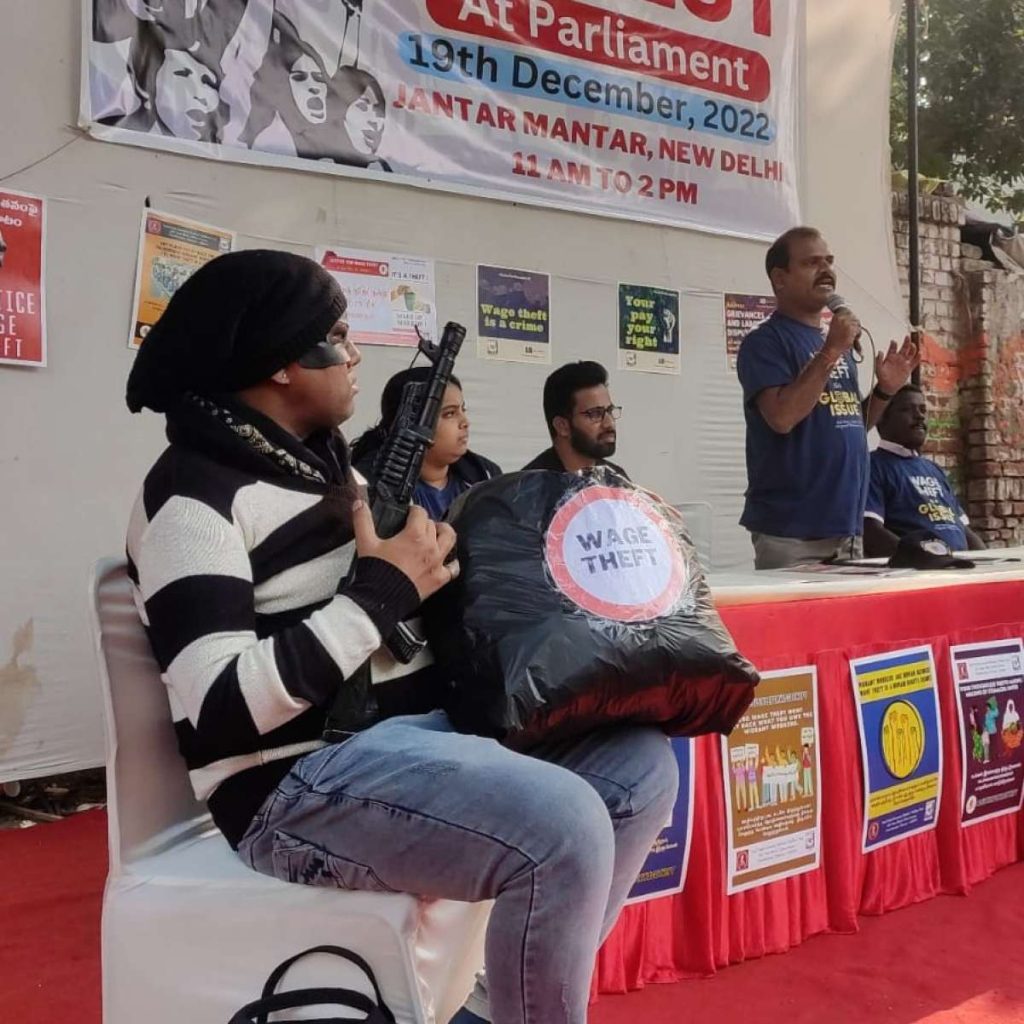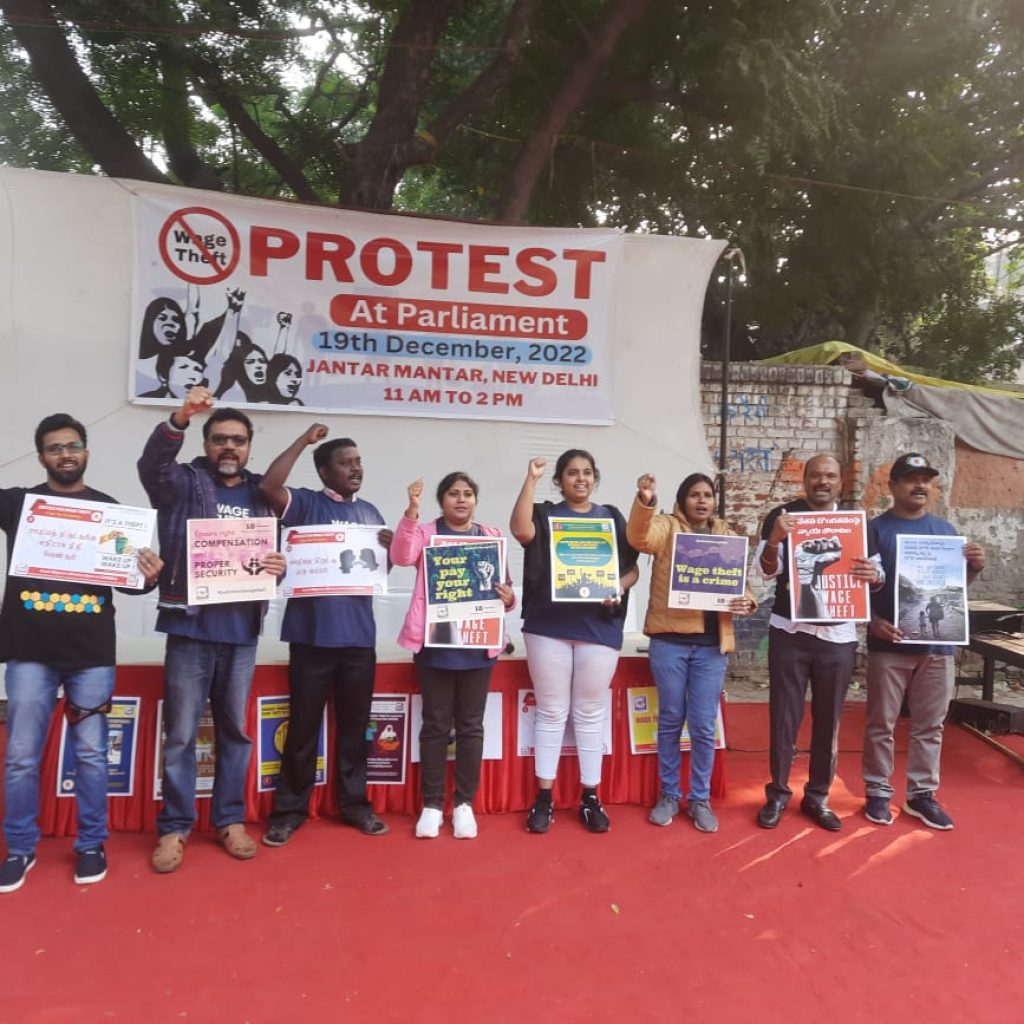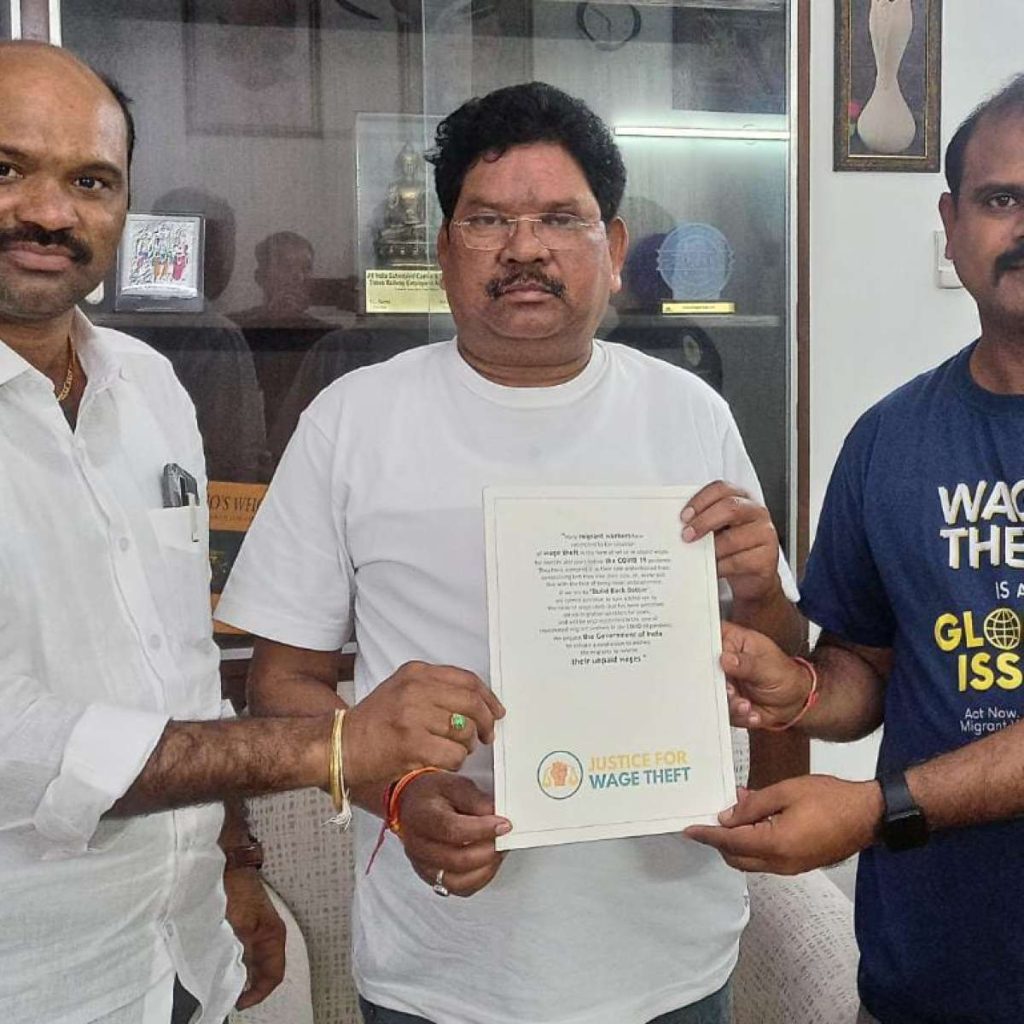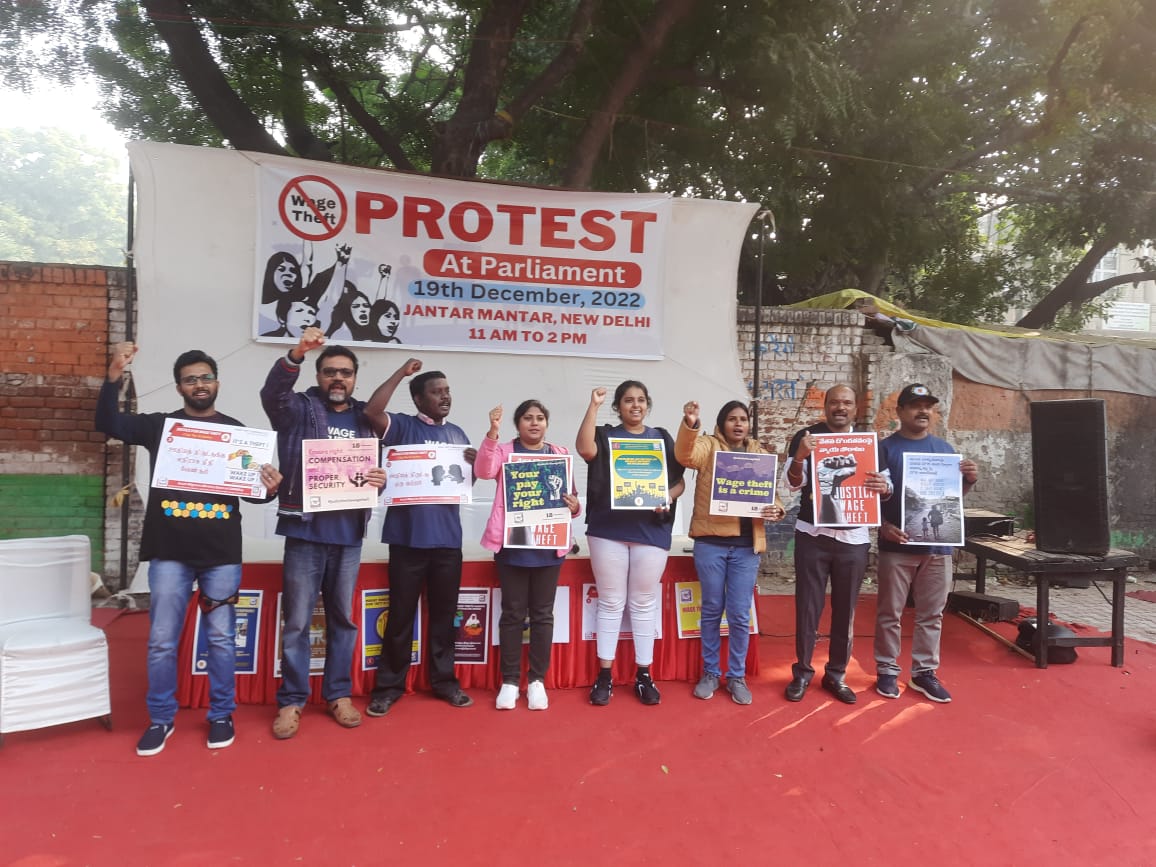Various migrant rights organisations from different states of India assembled at Jantar Mantar in New Delhi to mark International Migrants Day. They demand the Central Government and its External Affairs Ministry to address wage theft affected by Migrant workers, especially in the Middle East, through a trans-national mechanism
“When India is declaring itself as a Digital Nation, it still lacks enough data, official records and analytical research figures on the migration of Indians,” said Rafeek Ravuther, director of the Centre for Indian Migrants Studies (CIMS).
He was addressing the protest march at Jantar Mantar by various migrant rights organisations from different states of India to mark International Migrants Day. CIMS along with Emigrants Welfare Forum (EWF), National Workers Welfare Trust (NWWT), Tamil Nadu Domestic Workers Welfare Trust (TNDWWT), Migrant Rights Council (MRC), Working Peoples’ Coalition (WPC) and Jesuits Migrants Ministry External (JMMEx) were present to call for an urgent mechanism to address the non-payment issues of migrant workers, especially during the Covid lockdown period.
“There are thousands of migrant workers who lost jobs and returned back to India with empty hands. Their salary was either cut, reduced or denied. After reaching their home country they will realise the hard truth – there is no mechanism to approach the employers or companies to avail their pending salaries and benefits,” added Mr Rafeek Ravuther.
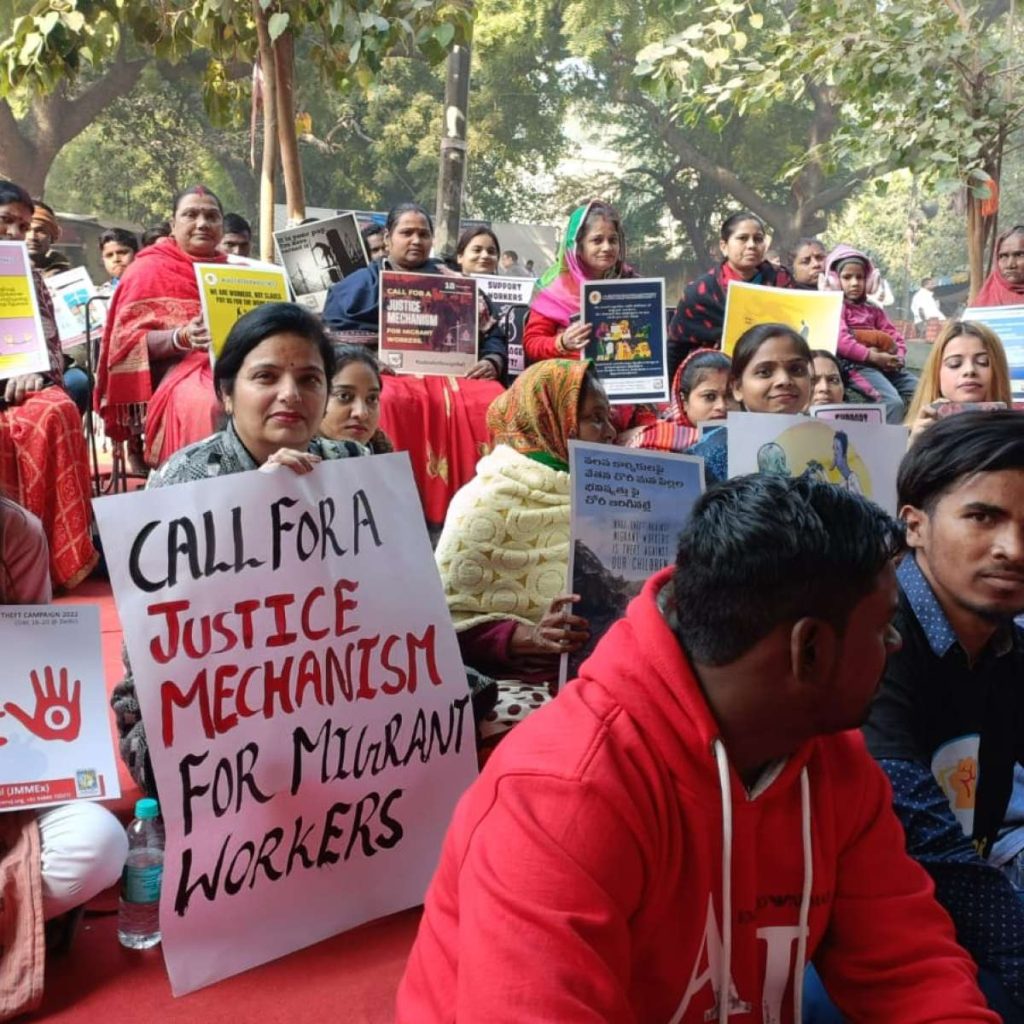
The travel restrictions and lack of employment opportunities during the Covid-19 forced several countries to bring back their citizens, especially temporary labour migrants. India, the home of nine million cross-border temporary labour migrants, carried out the largest repatriation exercise to bring back the stranded migrants. Even though the Indian government addressed the immediate requirement of repatriation, the government failed to acknowledge and alleviate their post-arrival grievances.
Historically, India’s response to the grievances of migrant workers is poor compared to other countries like the Philippines. Despite the launch of mechanisms like MADAD and Helplines, the issue of migrant miseries remains high. The number of unresolved cases in the recent past (2019 and 2020) is 6988. This figure is from the Gulf countries except for the UAE.
Unlike the pre-pandemic phase, the number of grievances from the workers had multiplied due to the economic crisis and panic triggered by the spread of the infectious disease. The issue of non-payment of wages and denying rightful benefits have risen. As per the study conducted by the Migrant Forum in Asia (MFA) only a handful of the workers received all benefits and dues before repatriation. The study was conducted among workers who had lost their jobs or were terminated and repatriated forcefully. Some workers were given false promises about their pending wages and dues.

The issue of ‘wage theft’ become widespread across all major migration corridors. Wage theft was poorly addressed over the years due to the lack of access to official justice mechanisms and labour protection systems both at the country of origin and destination.
As per the MFA study reports, most of the wage theft cases reported by Indians were group cases committed by medium to large firms involved in construction, hospitality, manufacturing, and transportation. It indicates that low, medium and high-skilled migrants are uniformly affected by the non-payment of wages. Most of them lost their job also.
The victims of wage theft were confused to file a complaint at the destination or give priority to opting for emergency repatriation. Many preferred the latter and travelled without any agreement or power of attorney submitted to the authorities or employers.
Panic and the lack of support to fight the case in the destination country also contributed to the plight of the migrant workers. There was no proper access to file a complaint Even though the issue was brought to notice during repatriation, the campaign against wage theft by the coalition of CSOs and trade unions had identified that the persistent issue of wage theft should not only be seen in the context of the pandemic.
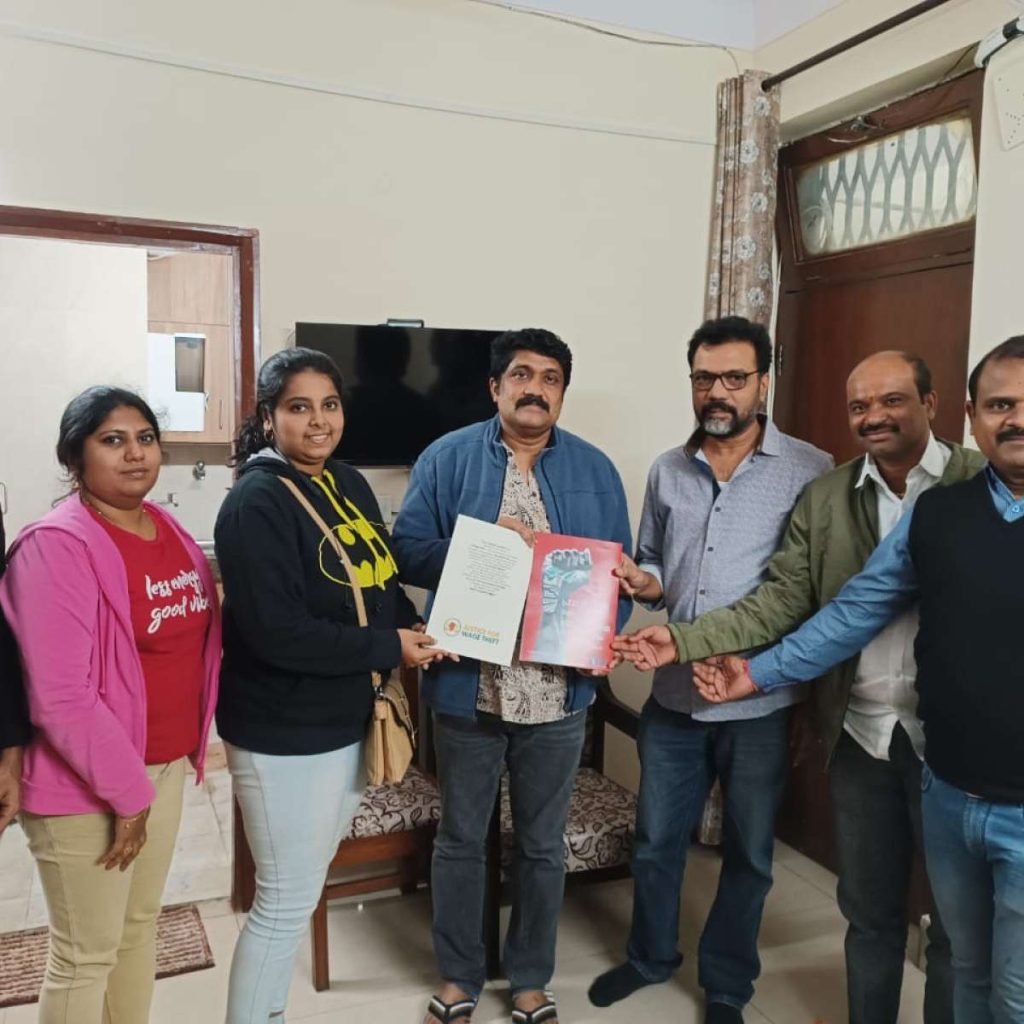
The financial constraints, the reluctance of legal firms to accept requests from workers, and the restrictions during the pandemic reduce the chances of individuals’ attempts to retrieve unpaid wages and benefits. Above all, the Indian government’s reluctance to proactively address the issue by initiating discussions at the national/bilateral/multilateral levels is a hindrance in every attempt to retrieve unpaid wages from abroad.
Telangana Gulf Congress Convener Singireddy Naresh Reddy, Pravasi Mitra Labor Union State President Swadesh Parikipandla, Fr. Manickyam. S and Stephen Raj of JMMEX, Sri Vaishnavi of TNDWWT, Dharmendra Kumar of Working Peoples Charter (WPC), Indra Narayan Jha of AHWT, Poonam Mahour of GWA, Neha of AIWA, Pankaj Bisht of SSSMH Joint Action Committee, Virender Kumar of WPWF, Vandana Narang of DWA are also addressed the protest. Manju Goel of AIWA coordinated the protest and Beema Basheer of CIMS delivered the vote of thanks.
The day-long protest demanded the central government take necessary actions to set up/strengthen the platforms of cooperation for government and non-government stakeholders to retrieve unpaid wages and other benefits and coordinate the efforts to address the grievances.
They also demand:
- Develop a standard labour contract for international migrants to help prevent the violation of fundamental labour rights. The stakeholder should also disseminate the clauses in the agreement widely among the migrants.
- Open up a free online/offline/24-hour hotline multilingual grievance platform in Missions and in airports in India (booth) for both current and returnee migrants to register their grievances, particularly on wage theft complaints.
- Create awareness among the migrants about using digital platforms to access various services of governments and other stakeholders.
- Set up a permanent transitional justice mechanism at least at the India-GCC level to address the issues of wage theft. Migrant workers must be allowed to file a grievance even in the absence of formal employment documentation, as the employer may have refused to provide it.
- Create a compensation fund for prompt payment in cases where the employer refuses to pay the migrant worker
- The government should lighten the burden of accessing justice. Missions must intervene to facilitate the power of attorney procedures prior to initiating any return procedures for those workers who have not received their due wages or benefits.
- The governments and regional mechanisms must use all means of communication available including public and social media, to inform them of the mechanisms through which they can claim their rights and register their grievances. Set up digital platforms and radio broadcasting for better outreach.
- Set up a ‘migrant labour rights violation monitoring mechanism’ which includes missions, representatives of the destination country, civil society and observers from the regional mechanism
- Indian government should sign bilateral agreements to protect the wages and benefits of migrants at their destination and ensure the portability of such benefits. Also, the government should revise and strengthen the existing Bilateral agreements and MoUs for the welfare and protection of migrant workers.
- Documentation: Indian missions should develop robust and easily accessible reporting systems to document whether migrant workers have been paid their due wages and benefits upon termination of their employment contract.
- Information dissemination – Both national and state governments may use the available platforms to disseminate information on the available mechanisms to claim the worker’s rights and register their grievances. To facilitate this, India must rapidly put hotline numbers that workers can call on any day to learn how to come forward and register their claims for wage theft.
- Ultimately, the government should ensure that the complaints mechanisms are available for migrant workers to seek justice, without fear of immigration enforcement, retaliation, detention or deportation.
